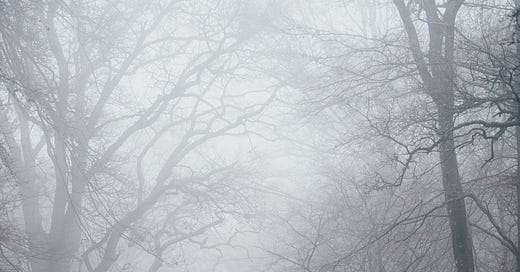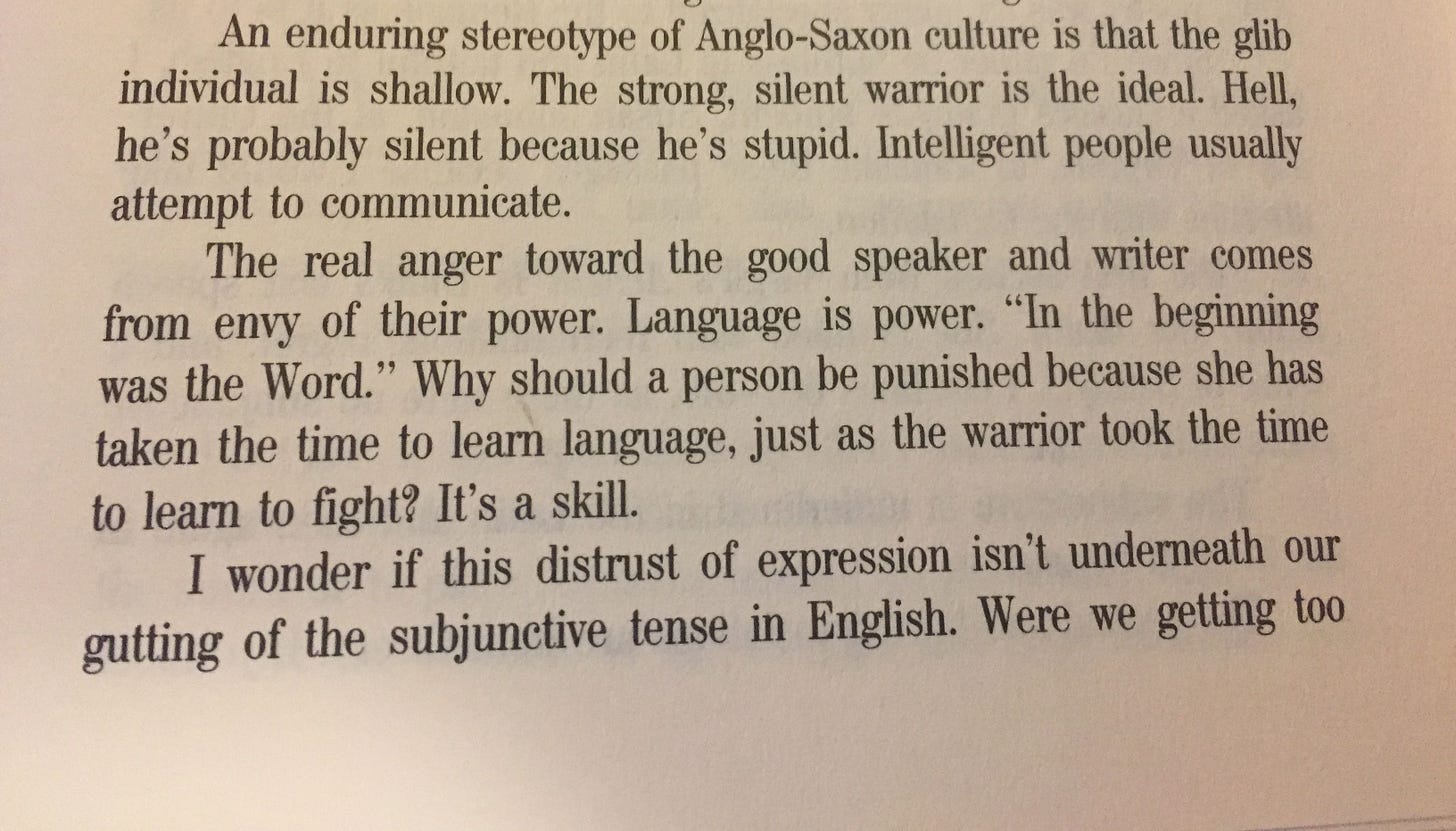photo by Annie Spratt on Unsplash
In grammar, mood is used to refer to a verb category or form which indicates whether the verb expresses a fact (the indicative mood), a command (the imperative mood), a question (the interrogative mood), a condition (the conditional mood), or a wish or possibility (the subjunctive mood). (from lexico.com - my emphasis)
I’ve written about Rita Mae Brown’s writers’ manual. Published in 1988, it is still one of my favourite books about writing. (And it’s all Brown’s fault that I suffered through two years of Latin. She would say “take four.”)
In the book, Starting From Scratch, there is an entire chapter devoted to the “subjunctive” mood, with the sub-title, The Empire of the Shadow Senses. While we do “have” the subjunctive mood in English, it’s not easily recognized. It’s hidden really, and what we’re left with is a handful of words. Some of these words are considered “conditional” but in a Venn diagram, we can throw them in with the small subjuncitve mix!
Mostly, English keeps us within the indicative, imperative, and interrogative moods.
The English language can’t keep you from feeling, fantasizing, dreaming, fearing, or stumbling into magic, but it can try to keep you from expressing what you have found while in those states of consciousness.
We have become so rigid in our experiential models that we label people irrational who dare discuss life in the shadow realm. (p.113, Brown)
What goes before and after these words in the chapter is well worth buying a copy of this book, or at least, finding it in your library. Brown is inquisitive and provocative and she deeply questions what we have tossed aside (baby with bathwater?) in relinquishing this mode of inflection in the English language. Of course, some languages do have it, recognizable in its formation, and it is fascinating to see that those languages that have held onto it in more obvious ways (with daily use and awareness) have a richness and potential for the magical that English writers can struggle with.
Before we go further, I’m going to link to a TED talk:
Take a look and listen to Phuc Tran, on the subjunctive.
While Tran is thinking about how these two moods shape our very thinking and values, for writers this awareness goes further, into creating.
Interesting that in the TED talk, Tran refers to English as a “subjunctive-rich fabric!”
Yet Rita Mae Brown bemoans the loss in English, and points to other languages for “rich.” If you read through some of the comments under the youtube link, you’ll see words from those who say Vietnamese also has the subjunctive, and Tran doesn’t know what he’s talking about. (!) Maybe all of this says something about awareness and life experience together with language/grammar.
As a writer, language is our most basic tool (or one of them: I think “choice” is even more fundamental). So it behooves us to get to know the nuances, and spend time working with the effects. I will say that until I studied Latin, I never heard a school teacher mention the S-word. Yet as a writer, the study has been time well-spent.
When I write works for young adults, I pause and consider—youth seems to be a “subjunctive” period of time, all its own. Any time of transition is, really. Tran’s talk makes me reconsider—what does it take to see a character shift from indicative to subjunctive, or vice versa? It’s a different lens. And more. An internalized lens.
How do we re-create the subjunctive in English:
(Unlike Tran, I’m not convinced we have a rich fabric in hand!)
The words in English, to indicate subjunctive, is a short list. You can run through the thesaurus with each of these, and poke around for more. Share any finds, please!
seemed, appeared, maybe, might, could, would, can, possibly, if…
But aside from the few we are left with—English dregs, so to speak—it is something to consider, to put our minds into this space, a space of wonder, of possibility. There is both wonder, and fear. This is the Unknown.
The biggest challenge to being a writer is to find the words to evoke… something. You know those times—the mining of self to articulate. The sense of bringing to the surface. (After digging in the dark.)
Brown describes the subjunctive as a “state of being”—it’ll allow you to evoke “doubt; fear; illusion; magic; empathy so strong you can assume another being’s identity; the future, undetermined as opposed to what we know as the simple future;…dreams.” She says that the subjunctive allows us “to imagine, to participate, to wonder.”
Toward the end of her chapter, she speaks to how:
photo: p. 116 Starting From Scratch, by Rita Mae Brown
The “empathy” comes of being able to say, “If I were you.” Think about that.
~~~~~~~~~
Questions? Thoughts? Words to add to the “Subjunctive dregs”?
Or maybe a piece of flash fiction in subjunctive mood…?? Go for it —
Use the comment box.






"The music reached into her and she felt a world so beautiful no one would ever want to destroy it. Laughter, and love, and light that made you sparkle inside, and great thoughts welling up and emotions pouring out and - and - such mysterious internal living." Subjunctive? Melodramatic trash? From a novel I'm working on. Four years of Latin and I've forgotten subjunctive, pluperfect....